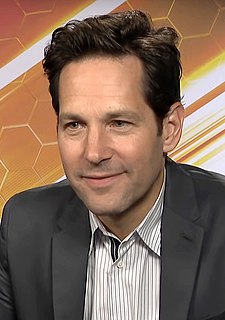A Quote by George Monbiot
A large body of literature suggests that wellbeing is intimately linked to attachment - not only to other people, but also to the natural world.
Quote Topics
Related Quotes
To remain attached to the temporal, to the changing is to remain within the world of misery because the temporal will be taken away. You have invested so much in it but one day everything is taken away. Then it is natural to feel miserable. Misery is rooted in attachment to the body and bliss is rooted in non-attachment to the body; hence all the great masters have been teaching methods and means of non-attachment, of getting disidentified with the body, with the mind, with everything surrounds you, and of just remaining a pure witness. That's what we are: pure witnessing, pure awareness.
As an engineer, I understood that the natural world operated according to fixed laws. Through my studies, I came to realize that there were, likewise, laws that govern human wellbeing. It seemed to me that these laws are fundamental not only to the wellbeing of societies, but also to the miniature societies of organizations. Indeed, that is what we found when we began to apply these principles systematically at Koch Industries. Through our observation of how they could create prosperity in an organization, I began to systematize my beliefs into Market-Based Management.
Each of us must come to care about everyone else's children. We must recognize that the welfare of our children and grandchildren is intimately linked to the welfare of all other people's children. After all, when one of our children needs lifesaving surgery, someone else's child will perform it. If one of our children is threatened or harmed by violence, someone else's child will be responsible for the violent act. The good life for our own children can be secured only if a good life is also secured for all other people's children.
The people who see the population explosion in the Malthusian way - as a geometric progression - forget that population growth is not a biological issue. People are not increasing in numbers out of stupidity and ignorance. Population growth is an ecological phenomenon linked very intimately to other issues, such as the usurpation of the resources which allow people to live.
Though we think intrinsic desires tend to be pretty stable, we do not think they imply anything like the amount of predictability in behavior that traditional virtue ethics requires for someone to have a one-word-in-English character trait such as "benevolence". Other things being equal, a person with more of a desire for other people's wellbeing will do more for other people's wellbeing, but things are almost never equal.
Organization is not only directly linked to unity, but a natural development of that unity. Accordingly, the leaders' pursuit of that unity is also an attempt to organize the people, requiring witness to the fact that the struggle for liberation is a common task." "Leaders who do not act dialogically, but insist on imposing their decisions, do not organize the people--they manipulate them. They do not liberate, nor are they liberated: they oppress.
I chose Congo in order to become close to a place that we had turned away from. It isn't present in our imaginations, in the stories we tell each other. Yet it's relevant to our lives and to our worlds, in a practical way. Congo supplies raw materials for the things that we use on a daily basis. We are intimately linked to Congo, economically. We're linked to it through human events that are occurring there, that affect all of us, and yet you don't find narratives of Congo present in our lives.
That love is a conflict seems to me obvious and natural. There isn't a single worthwhile work in world literature based on love that is only about the conquest of happiness, the effort to arrive at what we call love. It's the struggle that has always interested those who produce works of art - literature, cinema or poetry.






































